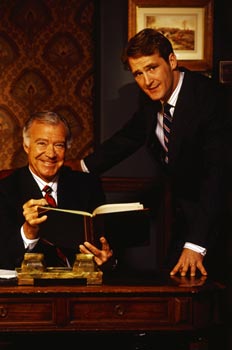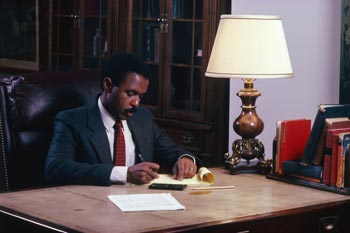
After narrowing the attorney list to two or three, contact the attorneys and request a face-to-face meeting. If you outline your needs in advance, many lawyers are willing to meet with you for a half-hour consultation at no charge. You should ask the attorney whether he or she charges a fee for an initial consultation. During this meeting, pay attention to your comfort level with the attorney. Ask all prospective lawyers:
- What is your experience in this area of law?







